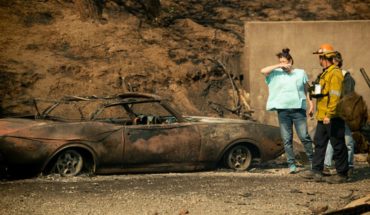
“It is a reality that we are going to have a global recession this 2020,” with that phrase former IMF chief economist Kenneth Rogoff referred to the global scenario for the expansion of coronavirus (Covid-19), a disease and declared a pandemic by WHO that also affects Chile. What will happen to the local economy? The academic’s prognosis has rather clouds than clear skies, although, in his view, the main question is whether we are going to have a V-shaped recovery or this will cause lasting damage.
In an interview with El Mercurio Kenneth Rogoff, he noted that the situation caused by coronavirus, i.e. total chaos in world markets, prices of collapsed commodities and millions of people unable to mobilize, is not only affecting industries tourism sector, but can also harm healthy parts of the economy, because demand has fallen too low.
“It’s too early to say, but I do think that sensitive and strong policies in Europe can prevent the recession from lasting for a long time,” he argued.
Asked for his worst fear of the future, the Harvard academic pointed out that he obviously wants to protect the entire population; but if this turns into a deep recession, “people are going to be unemployed for a long period, which will create tremendous stress, and that will create a lot of health problems.”
“I’m not a doctor and I don’t know what the most appropriate solution is, but I hope the United States will take a reasonable path to deal with this situation and not an extreme one, as Italy and Israel have done,” he said.
According to the former IMF owner, the situation may get much worse, but it is more likely to improve if proactive and appropriate policies are in place to manage the virus. Rogoff recommends that the world must respond by supporting health systems, with fiscal and monetary stimulus to calm things down.
“Markets probably aren’t going to go back to where they were until before this crisis, because people were living in an illusion that nothing bad could happen,” he warned.
However, Rogoff believes that things are gradually going to improve and that summer in the northern hemisphere will help to better control the virus and we find ourselves with a population that has already learned to live with it and with good measures in progress.
But despite optimism, the economist points out that the problem is that we don’t know if we’ve hit rock bottom or if the virus ends up being more complicated than expected or mutates into something worse, or if the measures being implemented are not the most appropriate.
“In my book about financial crises, I said that when shock occurs, the economy collapses and financial problems ensue, and much of the worsening situation is due to political paralysis. That’s an invariable part: governments are not able to react effectively,” he said.
In Chile “the setting is very complex”
Kenneth Rogoff’s vision of Chile is growing concern about the price of copper, the country’s main export; to the whole coronavirus phenomenon is added the social outburst that began on October 18.
“Many extraordinarily difficult things have happened in Chile in recent times. And the coronavirus situation is clearly not going to be good for the price of copper, since all commodities are collapsing, and it’s going to be complex,” Rogoff warned.
The American academic who has visited Chile elsewhere says that in the country we are in a situation where people want to be offered more of everything, but it will be difficult to do. He says that, in general, there has been this popular clamour that rejects capitalism but promises about expanding profits and delivering more tax resources are probably going to have to be left in a deep pause, “because governments are going to be dealing with medical problems to stay afloat and avoid a major crisis.”
“It’s going to be a very difficult period. I have a lot of Chilean friends and they’ve told me what’s going on there. Chile has its internal problems. All countries where the virus is located face the challenge of trying to contain it with measures such as social isolation, quarantines. How much effect they will have on economies and whether they will create additional problems, it has to be seen. The stage is very complex,” he concluded.





